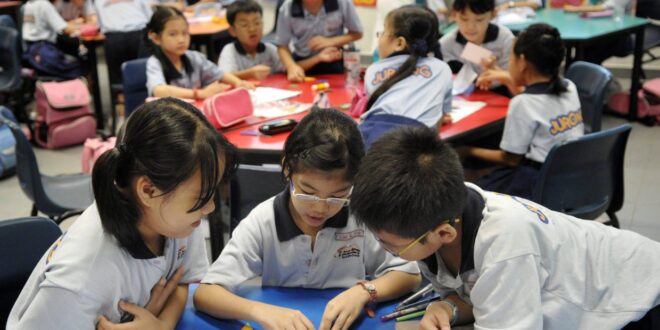PETALING JAYA: The new school curriculum must include a special education module for gifted children to prevent them from slipping through the cracks.
National Association for Gifted and Talented Children Malaysia (NAGCM) president Zuhairah Ali said holistic support and education that is tailored to their needs is necessary if we are to help gifted children fulfill their full potential and prevent them from dropping out of society.
The new school curriculum that is being developed by the Education Ministry must take into account our gifted students and help them develop resilience, social skills and emotional intelligence so that they can lead more fulfilling lives, she said.
Last month, Education Minister Fadhlina Sidek said a nationwide roadshow will be held to gather feedback for the 2027 school curriculum.
Gifted children can, more often than not, be “twice-exceptional” – excelling intellectually but face challenges in certain areas due to certain socio-emotional needs, said NAGCM adviser Dr Inderbir Sandhu.
“They navigate a dual reality, balancing internal motivation and belief in their abilities with occasional confidence gaps, akin to children with learning disabilities,” Dr Inderbir said.
Zuhairah said it is for these reasons that a specific policy for gifted children needs to be developed.
“Every child deserves to be understood and accepted for his or her uniqueness. A gifted child is no different,” she said.
“If we are not able to identify and support gifted children in our schools, they may disengage from learning.
“This can lead to underachievement and frustration, discouraging those like them from seeking help,” she said, adding that the social emotional development of these children must be enhanced as their giftedness should not come at the cost of their emotional well-being.
World Council for Gifted and Talented Member and Universiti Kebangsaan Malaysia (UKM) Assoc Prof Dr Rorlinda Yusof said a well-defined education policy tailored for the country’s gifted talents is necessary.
This policy, she said, should guide all aspects of providing advanced education – including teacher training, administrative and management staff development and the setting up of infrastructure and information systems.
Roslinda said gifted children greatly benefit from comprehensive support that encompasses learning assistance, psychological guidance, academic and career guidance for parents, teachers, schools and the community.
Psychological issues like loss of direction in life, suicide, delirium caused by failure to manage life pressures and the effects of great emotional-psychological issues such as perfectionism, anxiety and intense emotion can hinder the development of gifted children.
“When we fail to grasp their uniqueness, their nature is to feel alienated, leading them to develop numerous problems.
“This leads to self-isolation, significantly impeding their psychological and academic growth,” said Rorlinda, who was the Pusat Permata@Pintar Negara director from 2020 up till last month.
Launched in 2009, the Permata Pintar programme was the first educational programme of its kind for gifted and talented students.
UKM was given the mandate to develop, implement and monitor the programme, as well as manage the national gifted centre.
Some gifted children have been in the news for the wrong reasons.
Sufiah Yusof, a British mathematics prodigy from Malaysia who won a place at Oxford University, United Kingdom, when she was just 13, turned to prostitution in 2008.
In 2007, child prodigy, Malaysian Chiang Ti Ming died after making headlines in 1989.
He earned a doctorate in particle physics at Cornell University in the United States after studying physics at the prestigious California Institute of Technology.
Press reports in 2002 said that he was hospitalised in Kuala Lumpur for depression and withdrawal symptoms.
In Singapore, Amos Yee won acclaim for writing and directing a film at the age of 13.
But in 2021, he was imprisoned in the United States for grooming a teenage girl and possessing child pornography.
Last year, China’s youngest graduate student, who won a university spot when he was only 10 years old, told the media that at the age of 28, he is still financially dependent on his family because “they owe me”.
Zhang Xinyang, who was a PhD student in Applied Mathematics at a top university in Beijing at age 16, told the South China Morning Post that “sitting around and doing nothing is the key to life-long happiness”.
 BeritaKini.biz Berita Viral Terkini di Malaysia
BeritaKini.biz Berita Viral Terkini di Malaysia





